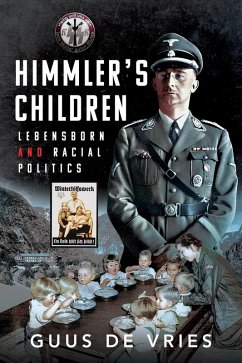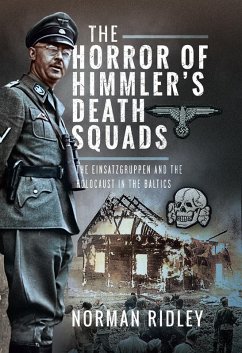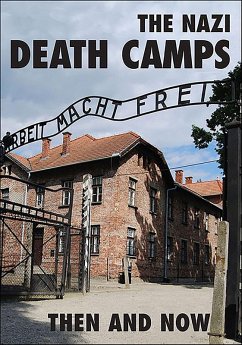
Horror of Himmler's Death Squads (eBook, ePUB)
The Einsatzgruppen and the Holocaust in the Baltics
Versandkostenfrei!
Sofort per Download lieferbar
8,95 €
inkl. MwSt.
Weitere Ausgaben:

PAYBACK Punkte
4 °P sammeln!
During the Second World War, Lithuania, Latvia and Estonia were occupied on three separate occasions - twice by the Soviet Union and once by Nazi Germany. The signing of the Ribbentrop-Molotov Pact of 1939 allowed the Soviets to dominate the Baltic states without fear of German reprisals, causing many in the German-Baltic populations to flee to Poland.Soviet rule of the Baltics was brutal with the purging of political elites and deportation of many tens of thousands in a bid to turn them into vassal states. Consequently, when Hitler launched Operation Barbarossa in June 1941, many Balts saw it...
During the Second World War, Lithuania, Latvia and Estonia were occupied on three separate occasions - twice by the Soviet Union and once by Nazi Germany. The signing of the Ribbentrop-Molotov Pact of 1939 allowed the Soviets to dominate the Baltic states without fear of German reprisals, causing many in the German-Baltic populations to flee to Poland.Soviet rule of the Baltics was brutal with the purging of political elites and deportation of many tens of thousands in a bid to turn them into vassal states. Consequently, when Hitler launched Operation Barbarossa in June 1941, many Balts saw it as a liberation from Soviet cruelties. The reality was, however, that it turned out to be the beginning of something much worse.During their occupation of Poland prior to Barbarossa the Nazis had decimated the Polish political elites, and the Jews there had been herded into ghettos in preparation for deportation to the east where they would serve as slave labour in the Nazi economy after the conquest of the Soviet Union. Similar policies were to be adopted in the Baltics when Heinrich Himmler's murder squads, the Einsatzgruppen, were allowed to move into the newly-occupied territories.Operating behind the advancing German forces Einsatzgruppen A, B, C, and D - four special mobile killing units, each made up of about a thousand men from the security police and the German intelligence service - proved to be more than willing to carry out Himmler's orders. He had called for the removal of every vestige of opposition to Nazi rule, which primarily meant complete elimination of the 'inferior' races who were unfit for work and the ghettoization of others in preparation for their economic exploitation.On foreign soil, away from scrutiny and free of all constraint, the Einsatzgruppen discovered that through the mass shootings of communists, Jews and gypsies it was possible to accelerate the pace of the Holocaust, slaughtering men, women and children in their tens of thousands. The Einsatzgruppen were assisted by local 'volunteers' who helped to identify victims as well as kill them; in places whole Jewish communities were swiftly eliminated. Many of the killers and victims had known one another as neighbors and colleagues.This massive slaughter of civilians convinced Heydrich and Himmler that complete extermination of Jews was within their grasp and before very long, in the death camps, new industrial methods of killing would be devised.
Dieser Download kann aus rechtlichen Gründen nur mit Rechnungsadresse in A, B, BG, CY, CZ, D, DK, EW, E, FIN, F, GR, HR, H, IRL, I, LT, L, LR, M, NL, PL, P, R, S, SLO, SK ausgeliefert werden.













